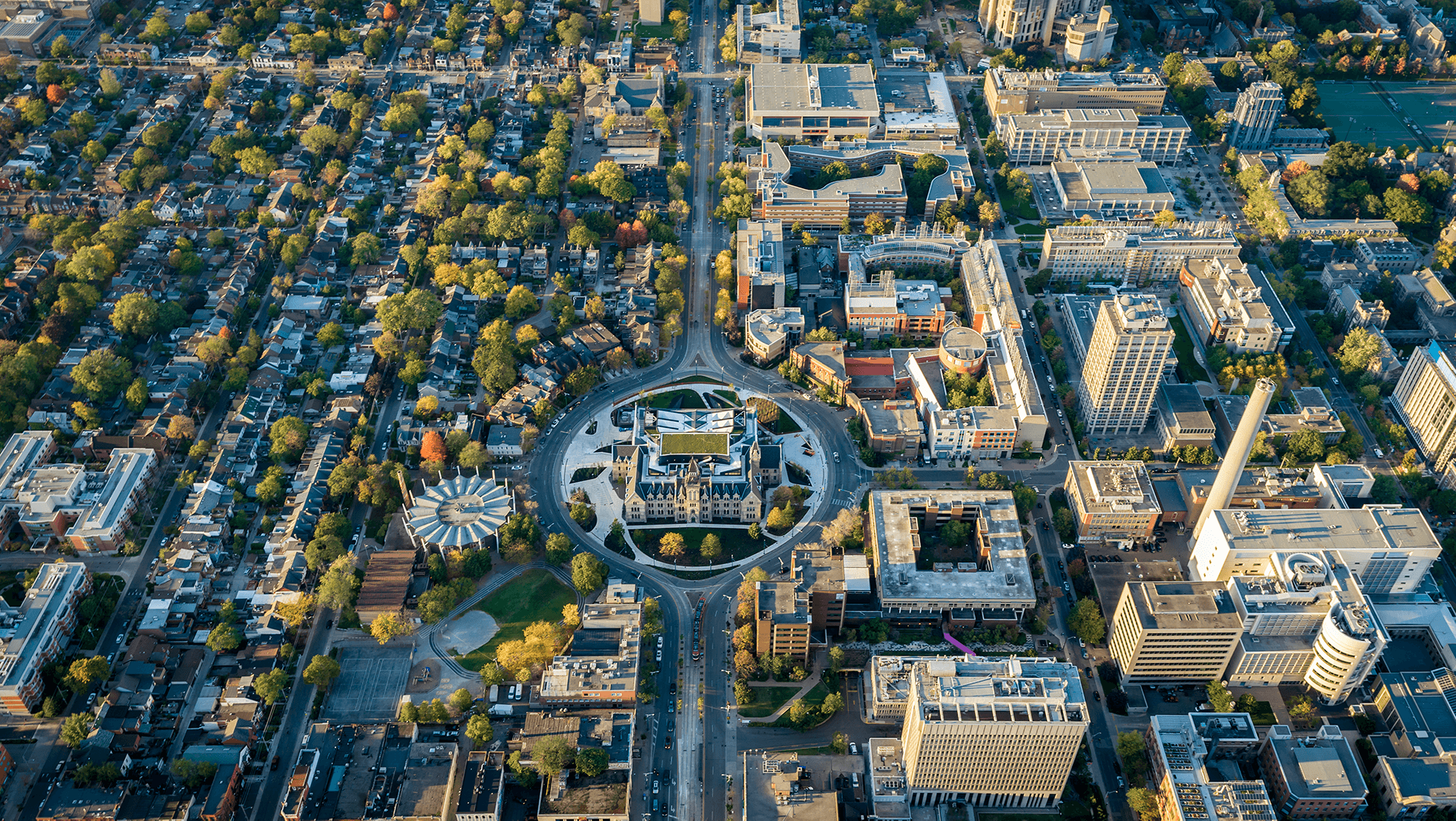By the turn of the next century, more people will live in cities than currently populate the entire Earth – many of them in the burgeoning metropolises of the global South.
This buildup of new urban development – and the repairs and modernization needed in existing settlements – will require a global investment of trillions of dollars. We can’t afford to do this in an ad hoc way. We need to make smart decisions grounded in solid evidence.
Canada is already one of the world’s most urbanized societies, with more than 80 per cent of our population residing in urban areas. Addressing the challenge of urban growth – both at home and abroad – requires a whole new kind of inquiry. We need research that extends across disciplines, drawing on many different kinds of expertise, if we are to move to a richer understanding of cities.
We need a collaborative platform from which to study, evaluate and solve urban problems.
The University of Toronto is uniquely positioned among Canadian universities to take up this challenge. Earlier this year, we announced a new School of Cities, which will draw from a diverse pool of more than 200 faculty across our three campuses – from architecture and engineering to geography, management, public health and the humanities.
Many universities are located within urban areas, but can often seem removed from the daily life of the city. With the School of Cities, we hope to surmount this barrier by welcoming people from civic organizations both in Toronto and around the world to tap into our expertise and collaborate with our students and faculty. By working together with partners outside the university, we’ll be better equipped to tackle the most serious urban challenges and develop effective solutions.
This global hub of urban thinkers will seek solutions to a number of vexing questions, such as how we make sure that people with lower incomes can afford to live in our most successful cities. How do we connect all neighbourhoods with public transit, particularly those that are underserved? How do we ensure that immigrants, the overwhelming majority of whom choose to settle in and around our largest cities, are able to prosper – with good access to housing, jobs and education? How can cities do their part to reduce greenhouse gas emissions? There are many good things associated with higher-density built form, but we’re not always comfortable with it. How do we learn to love more dense urban development, and how do we do it well?
Our success as a society will depend on how we answer these questions. This is true for Canada, and for every country around the world. While our aspirations for the School of Cities were conceived in Toronto, the knowledge and understanding we gain will be applicable everywhere, potentially bringing tangible improvements to the lives of millions of people.




2 Responses to “ Building Better Cities ”
I would like to share an example of the sorts of research and publications that need to be encouraged at the School of Cities.
What a lovely and innovative initiative to build a better urban community with contributions from diverse groups. I am eager to learn more about the ideas and details about the School of Cities.